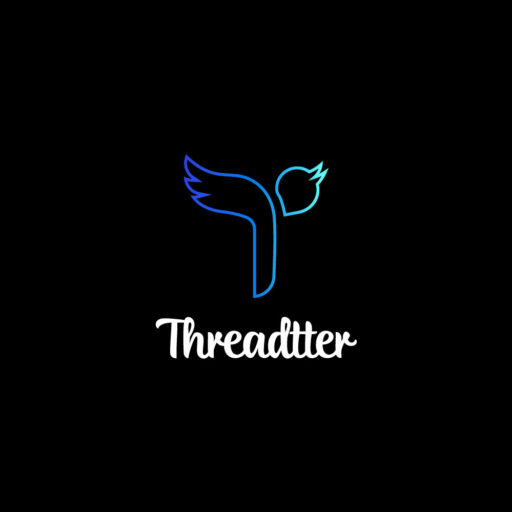In the ever-evolving world of social media, few figures wield as much influence as Mark Zuckerberg. As the CEO of Meta, formerly Facebook, his decisions shape how billions of people consume information, connect with others, and even perceive the world. But in recent years, a growing chorus of critics suggests that Zuckerberg is steering Meta into politically charged waters, particularly favoring right-wing narratives. Is this a calculated business strategy, a response to external pressures, or a reflection of deeper ideological leanings? This article explores the complex dynamics behind Meta’s political trajectory, examining the evidence, implications, and future consequences.
Meta’s Cost-Cutting Moves: What Zuckerberg’s Layoffs and DEI Cuts Mean for the Future
The Early Days: Neutral Grounds or Hidden Bias?
When Facebook first launched in 2004, its mission was clear: to connect people and foster open communication. Zuckerberg championed the idea of a politically neutral platform where diverse voices could be heard. However, as the platform grew, so did its influence on political discourse.
- The 2016 Election and Cambridge Analytica
Facebook’s role in the 2016 U.S. Presidential Election marked a turning point. The Cambridge Analytica scandal exposed how user data was exploited to target voters with tailored political ads, many of which supported right-wing candidates. Although Zuckerberg publicly apologized, critics argue that the platform’s algorithms inherently favored sensationalist, polarizing content—a trend more prevalent in right-wing media.
Key Stats:
- In 2016, 56% of U.S. adults reported seeing political content on Facebook daily.
- A study by BuzzFeed News found that the top-performing fake news stories on Facebook during the election were overwhelmingly pro-Trump.
- The Algorithm Dilemma
Facebook’s algorithms prioritize engagement, often amplifying content that provokes strong emotional reactions. This inadvertently gives an edge to sensationalist right-wing content, which tends to be more emotionally charged and shareable. While Zuckerberg maintains that the platform is politically neutral, internal reports suggest otherwise.
Internal Findings:
- A 2018 internal study revealed that Facebook’s algorithm changes to promote “meaningful interactions” increased the visibility of divisive political content.
- Frances Haugen, a former Facebook employee turned whistleblower, testified that the company knowingly promoted content that fueled political polarization.
Meta’s Hybrid Work Policy: Why Zuckerberg Thinks ‘The Status Quo is Fine’
Strategic Shifts: Business Decisions or Ideological Leanings?
As Meta faced increasing scrutiny over its role in political discourse, Zuckerberg made several decisions that critics interpret as pandering to right-wing audiences.
- Hiring Patterns and Board Influence
Meta’s hiring of prominent conservative figures and partnerships with right-leaning organizations has raised eyebrows. Notably, Joel Kaplan, Meta’s Vice President of Global Public Policy and a former deputy chief of staff for George W. Bush, has been a key figure in shaping the company’s political strategy.
Notable Moves:
- Kaplan’s public support for Brett Kavanaugh during his Supreme Court confirmation hearings stirred internal unrest at Meta.
- Meta’s oversight board includes members with conservative affiliations, prompting concerns about ideological bias in content moderation decisions.
- Content Moderation Controversies
While Meta has faced criticism from conservatives over alleged censorship, evidence suggests the platform has made concessions to appease right-wing critics. For instance, the company has been accused of giving preferential treatment to conservative pages and influencers, allowing them to violate platform policies without repercussions.
Content Moderation Data:
- A 2020 report by The Wall Street Journal revealed that Facebook altered its algorithm to reduce the visibility of left-leaning news outlets while boosting conservative content.
- Project Veritas, a right-wing activist group, received minimal penalties for spreading misinformation compared to left-leaning organizations facing stricter enforcement.
External Pressures: Navigating Political and Public Scrutiny
Zuckerberg’s decisions can also be viewed through the lens of external pressures—from political threats to market dynamics.
- Government Scrutiny and Political Leverage
Facing multiple antitrust investigations and calls for regulation, Meta has had to tread carefully. Some analysts argue that aligning with right-wing narratives helps the company mitigate political backlash, particularly from Republican lawmakers who have threatened to regulate or break up big tech companies.
Regulatory Landscape:
- In 2021, 37 U.S. states filed antitrust lawsuits against Meta.
- Congressional hearings often saw Republican lawmakers defending Meta against accusations of conservative censorship while simultaneously threatening regulation.
- Market Dynamics and Audience Retention
The demographics of Meta’s user base have shifted over time, with younger users gravitating toward platforms like TikTok and Snapchat. Older, more conservative users remain a significant portion of Facebook’s audience, influencing the company’s content policies and strategic direction.
User Demographics (2023):
| Age Group | Facebook Users (%) | Political Affiliation (%) |
| 18-24 | 15% | 30% Liberal, 20% Conservative |
| 25-44 | 35% | 40% Liberal, 35% Conservative |
| 45+ | 50% | 20% Liberal, 50% Conservative |
Critical Analysis: The Risks and Consequences
Meta’s perceived right-wing shift is not without risks. It raises questions about the role of social media in democracy, the ethical responsibilities of tech giants, and the long-term implications for Meta’s global reputation.
- Erosion of Public Trust
Meta’s credibility as a neutral platform is increasingly under scrutiny. By appearing to favor one side of the political spectrum, the company risks alienating users, advertisers, and stakeholders who value impartiality.
Trust Metrics:
- A 2023 Pew Research Center survey found that only 36% of Americans trust Facebook as a source of political information, down from 51% in 2018.
- Global Implications
Meta’s influence extends beyond the U.S., and its political biases can have ripple effects worldwide. In countries with fragile democracies, the platform’s content moderation policies can exacerbate political tensions, spread misinformation, and even incite violence.
Global Impact Examples:
- In Myanmar, Facebook was implicated in the spread of hate speech against the Rohingya Muslim minority, contributing to ethnic violence.
- In India, the platform has faced criticism for failing to curb inflammatory content linked to right-wing nationalist groups.
- The Future of Political Discourse on Meta
As Meta continues to evolve, its role in shaping political narratives will remain a contentious issue. Whether Zuckerberg’s decisions are driven by business pragmatism, ideological leanings, or external pressures, the consequences for democracy and public discourse are profound.
Future Scenarios:
- Scenario 1: Meta doubles down on right-wing content to retain its aging user base, further polarizing political discourse.
- Scenario 2: The company implements stricter, more transparent content moderation policies to restore public trust, risking backlash from conservative users and politicians.
Conclusion
Mark Zuckerberg’s stewardship of Meta has brought the company to the forefront of political discourse, but at what cost? As allegations of a right-wing shift mount, the broader implications for democracy, public trust, and the future of social media cannot be ignored. Whether driven by strategy, ideology, or necessity, Meta’s political trajectory will continue to shape the digital landscape—and the world’s political future—for years to come.


